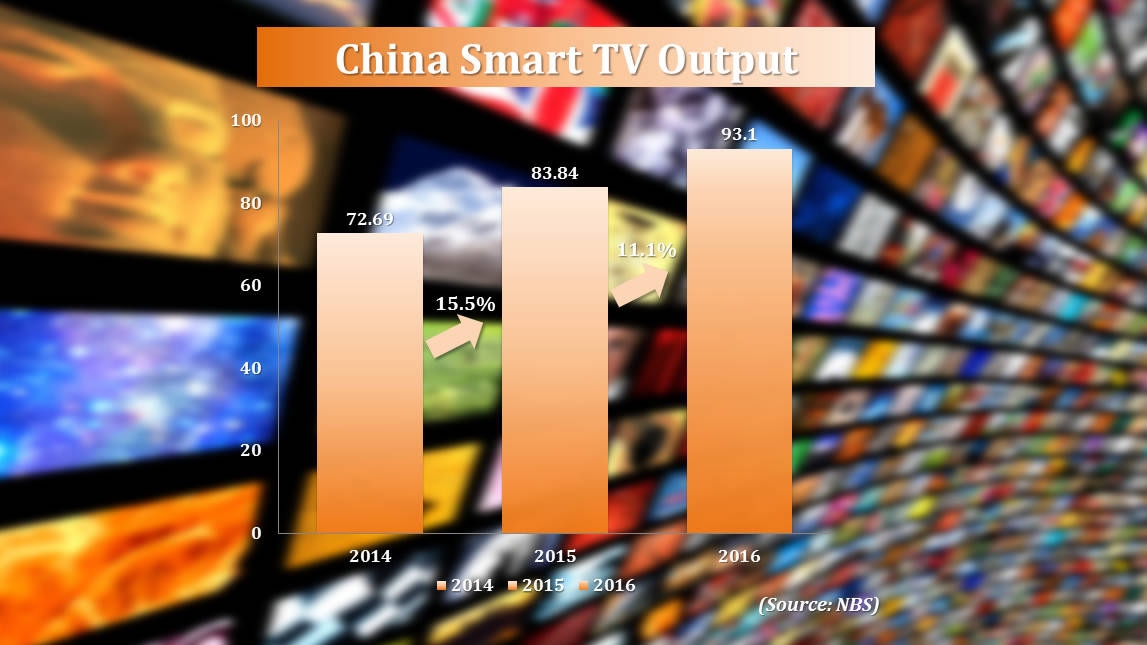
Business
19:52, 10-Aug-2017
On the box: AI hits China’s TV sector to appeal to young buyers
By CGTN’s Mi Jiayi

Chinese TV manufacturers have begun to upgrade their products by making them smarter, combining internet content with artificial intelligence (AI), and now they're targeting young buyers.
According to the National Bureau of Statistics (NBS), the smart TV sector had a sales volume of around 40.98 million yuan last year, and that number is expected to top 50 million in 2018.
However, the growth speed of output has slowed down. Official data showed that the growth rate of smart TV production was 11.1 percent in 2016, lower than 2015's figure which was 15.5 percent.

CGTN Photo
CGTN Photo
Analyst blamed the slower growth rate on the saturated market and expect the sector to maintain steady growth in the future.
But how can manufacturers boost sales?
Smart TVs equipped with AI functions might be a nice option. BesTV, one of the main manufacturers, is working on making its products smarter with new AI functions.
“We are researching how to use AI technology to differentiate among different users and then recommend to them content based on their preferences. The upgrade from traditional TV sets to smart TVs has started - 70 percent of our shipments are smart TV boxes, and the number of those with AI technology is growing very fast,” said Yu Zhufeng, the company's Assistant President.
Meanwhile, accurate market positioning and active market segmentation can help manufacturers zone in on specific groups, producing and selling more efficiently so that it can be easily understood why producers collimate China's young generation, major consumers of smart products online in 2016.

VCG Photo
VCG Photo
“More people born after 1990 have become the major consumers of home appliances. Our data shows this group of consumers accounted for more than one quarter of consumers of smart home appliances,” said Li Xiang, a Senior Data Analyst at CBNData.
Major players in the sector have added various “black tech” to satisfy their customers.
Users can not only choose between dramas and movies on intelligent TVs, but also pick weather forecasts and even stock market updates.
But trying to appeal to this group of consumers isn't easy, as young people are often quickly bored.
Another industry observer points out that the current functions of smart TVs are quite limited, mainly focusing on voice recognition and interaction.
Other kinds of AI-related functions are still in the early research stage.
“Smart home appliances are still at an immature stage. If you look at the technology and the applications, you can see they are still a long way from being really smart and intelligent,” said Lai Zhen, an analyst at iResearch.

SITEMAP
Copyright © 2018 CGTN. Beijing ICP prepared NO.16065310-3
Copyright © 2018 CGTN. Beijing ICP prepared NO.16065310-3